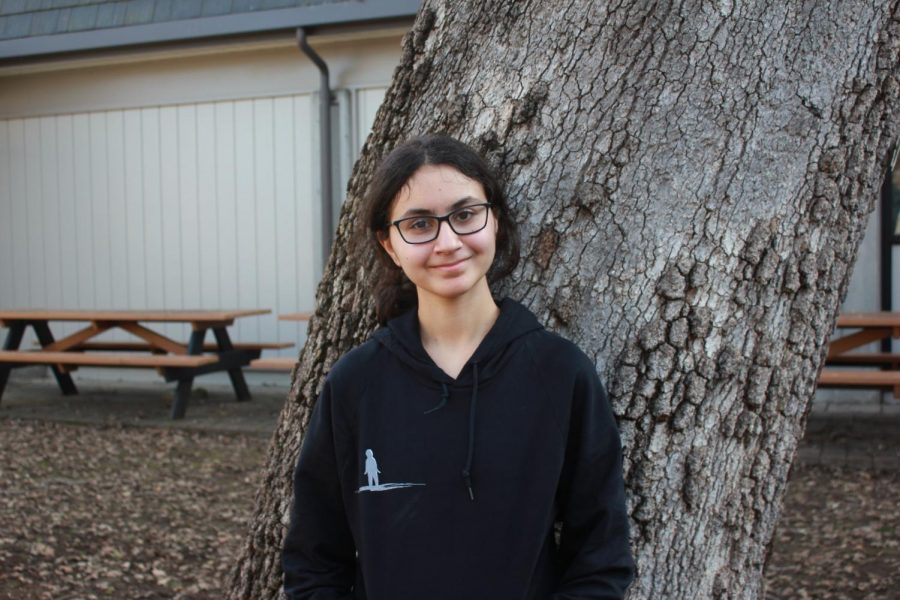Students preserve cultural roots through multilingualism: Shana Ebrahimnejad
For freshman Shana Ebrahimnejad, learning Farsi, German, French and English came from her life in Germany and America, her Persian roots and Duolingo.
As her family moved between countries, Ebrahimnejad acquired languages naturally through immersion. Accordingly, she interprets these languages without thinking. “For German and Farsi, [the language] is something I’ve grown up around,” she said. “I can understand it better, but…it goes in one ear, gets translated and then goes out the other. I can’t recall the words that have the meanings.”
Despite this, Ebrahimnejad’s knowledge improves her communication with others, including her extended family in Iran. “People are a lot more clear and eloquent in their own language,” she said. “So when you’re multilingual, and you’re able to understand a person’s easiest tongue, you can understand the person more easily.”
Ebrahimnejad also derives personal satisfaction from being multilingual. “I really like the history behind words, and it’s really interesting to see how words differ from place to place,” she said. “There’ll be some words that’ll be the same [between languages], and I’ll be like, ‘Oh my god!’ That’s always fun.”
As further motivation, Ebrahimnejad’s multilingual family supports her proficiency in all four languages. “My dad encourages both my sister and me to write texts in the morning, but in German,” she said. “He also sometimes sends us articles in German and generally speaks to us in Germ-glish, [a combination of German and English].”
For aspiring language learners, Ebrahimnejad acknowledges that becoming fluent takes hard work. “If there’s anyone out there who is trying to become multilingual, it honestly takes a while, and you just need to practice,” she said. “You need exposure to the language.”
Overall, Ebrahimnejad believes that being multilingual is worth the effort. “When you know a language, you see the culture of a place and interact with it, which enriches your experience and your view,” she said.
Your donation will support the student journalists of Henry M. Gunn High School. Your contribution will allow us to purchase equipment and cover our annual website hosting costs.


